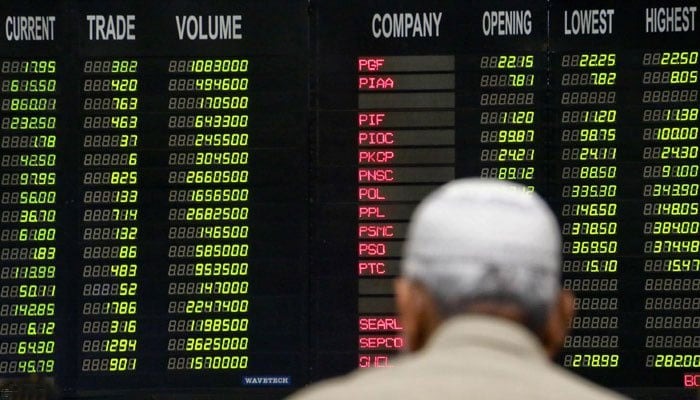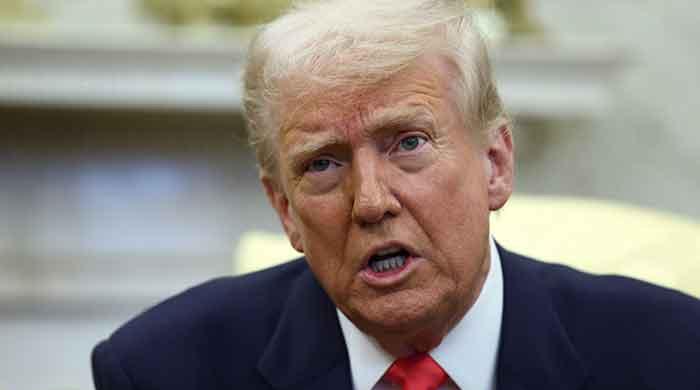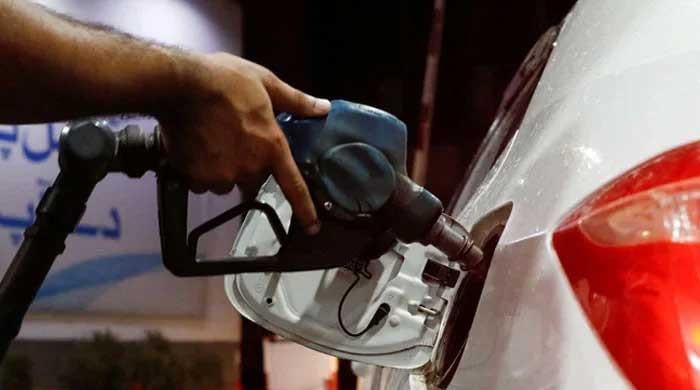PSX rallies as investor confidence returns amid lower inflation estimates
February inflation estimates lower than expected, reinforcing investor confidence in potential rate cut
February 11, 2025

- KSE-100 Index surges 1,632.42 points, closes at 113,010.38.
- Market hits intraday high of 113,233.40, buoyed by optimism
- Market rebounds, touching session low of 111,834.20.
The capital market extended its recovery on Tuesday, as investor confidence strengthened amid expectations of strong corporate earnings and declining inflation.
Market participants responded positively to attractive stock valuations following recent corrections, while a rebound in energy stocks indicated that value buyers were returning to the market.
Anticipation of another interest rate cut by the State Bank of Pakistan (SBP) also contributed to the bullish sentiment.
The Pakistan Stock Exchange’s (PSX) benchmark KSE-100 Index surged by 1,632.42 points, or 1.47%, to close at 113,010.38, building on Monday’s gains.
The market touched an intraday high of 113,233.40, while the lowest level of the session stood at 111,834.20, reflecting strong buying momentum across multiple sectors.
Market analysts linked the rally to strong earnings expectations, attractive stock valuations, and improving inflation outlook.
Ahfaz Mustafa, CEO of Ismail Iqbal Securities, said: "The market is recovering after a few days of dull activity. The earnings season is ongoing, so activity is dependent on how companies fare. A sharp recovery in energy stocks indicates value buyers are coming back to the market."
He further highlighted that February inflation estimates are lower than expected, reinforcing investor confidence in a potential rate cut in the coming months, which would further stimulate economic activity and stock market performance.
Brokerage firm Arif Habib Limited (AHL) has projected that the Consumer Price Index (CPI) for February will decline to 1.99% year-on-year (YoY)—its lowest level in nearly a decade.
The projection is based on the first week’s data from the Sensitive Price Index (SPI), which also suggests a month-on-month (MoM) CPI decline of 0.37%. If confirmed, this could strengthen expectations of further monetary easing by the SBP, further supporting investor sentiment and economic recovery.
Speaking to business leaders and investors on Monday, Prime Minister Shehbaz Sharif said that Pakistan had achieved macroeconomic stability over the past year, largely due to the International Monetary Fund (IMF) programme and ongoing reforms.
He said that the macro level foundation of the Pakistani economy had gradually improved in the previous year as the inflation was at 2.4% in the month of January and bank’s policy rate was at 12%.
The exports had improved as compared to last year and the foreign remittances touched the level of three billion dollars which was a record, he explained.
Despite this positive trajectory, the prime minister acknowledged that Pakistan still faces economic challenges, but emphasized that the government is moving in the right direction to achieve long-term growth.
Further bolstering investor confidence, Pakistan’s remittances surged 25.2% YoY to $3 billion in January 2025, driven by economic recovery, a stable rupee, and government efforts to crack down on illegal money.
For the July-January period of fiscal year 2024-25 (7MFY25), remittances totaled $20.8 billion, reflecting a 31.7% YoY increase compared to $15.8 billion in the same period last year.
While January remittances were slightly lower (-3.2%) than December’s $3.1 billion inflow, analysts credited reforms by the State Bank of Pakistan (SBP) and government incentives for banks and exchange companies for improving official inflows.
Additionally, declining global inflation and rising living costs in Pakistan have prompted more Pakistani expatriates to send funds home, helping keep the country’s external accounts stable.
The KSE-100 Index, on Monday, surged by 1,055.03 points, or 0.96%, to close at 111,377.97. The index touched a high of 111,622.72, while the lowest level was recorded at 109,948.57, indicating strong buying interest.











